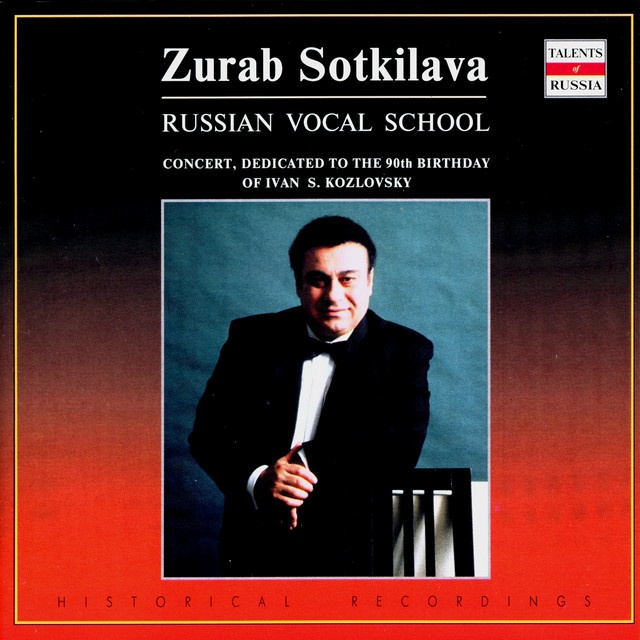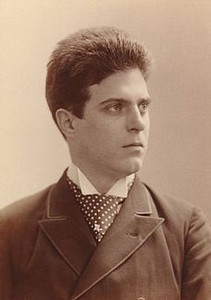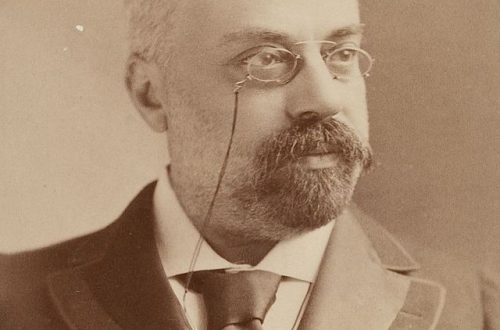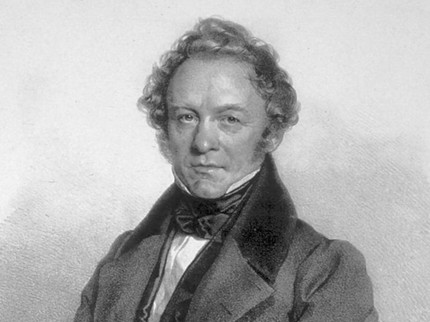
Pyotr Bulakhov |
Pyotr Bulakhov
“… His talent is growing every day, and it seems that Mr. Bulakhov should completely replace our unforgettable romance composer Varlamov for us,” the newspaper Vedomosti of the Moscow City Police reported (1855). “On November 20, in the village of Kuskovo, Count Sheremetev, near Moscow, the famous author of many romances and former singing teacher Pyotr Petrovich Bulakhov died,” the obituary in the newspaper Musical Review (1885) said.
The life and work of the “famous author of many romances”, which were widely performed in the second half of the last century and are still popular today, have not yet been studied. A composer and vocal teacher, Bulakhov belonged to a glorious artistic dynasty, the core of which was father Pyotr Alexandrovich and his sons, Pyotr and Pavel. Pyotr Alexandrovich and his youngest son Pavel Petrovich were famous opera singers, “the first tenorists”, the father was from the Moscow and the son from the St. Petersburg Opera. And since both of them also composed romances, when the initials coincided, especially among the brothers – Pyotr Petrovich and Pavel Petrovich – over time there was confusion over the question of whether the romances belonged to the pen of one of the three Bulakhovs.
The surname Bulakhov was previously pronounced with an accent on the first syllable – Bуlakhov, as evidenced by the poem of the poet S. Glinka “To Pyotr Alexandrovich Bulakhov”, which glorifies the talent and skill of the famous artist:
Буlakhov! You know the heart From it you extract Sweet voice – the soul.
The correctness of just such a pronunciation was pointed out by the granddaughter of Pyotr Petrovich Bulakhov, N. Zbrueva, as well as Soviet music historians A. Ossovsky and B. Steinpress.
Pyotr Alexandrovich Bulakhov, father, was one of the best singers in Russia in the 1820s. “… This was the most skillful and most educated singer who ever appeared on the Russian stage, a singer about whom the Italians said that if he had been born in Italy and performed on stage in Milan or Venice, he would have killed all famous celebrities before him,” F. Koni recalled. His inherent high technical skill was combined with warm sincerity, especially in the performance of Russian songs. A regular participant in Moscow productions of A. Alyabyev and A. Verstovsky’s vaudeville operas, he was the first performer of many of their works, the first interpreter of the famous “cantata” by Verstovsky “The Black Shawl” and the famous Alyabyev’s “The Nightingale”.
Pyotr Petrovich Bulakhov was born in Moscow in 1822, which, however, is contradicted by the inscription on his grave at the Vagankovsky cemetery, according to which 1820 should be considered the date of birth of the composer. The meager information about his life that we have paints a difficult picture, joyless. The difficulties of family life – the composer was in a civil marriage with Elizaveta Pavlovna Zbrueva, whom her first husband refused to grant a divorce – were aggravated by a long serious illness. “Chained to an armchair, paralyzed, silent, withdrawn into himself,” in moments of inspiration he continued to compose: “Sometimes, although rarely, my father still approached the piano and played something with his healthy hand, and I always cherished these minutes “, – recalled his daughter Evgenia. In the 70s. the family suffered a great misfortune: one winter, in the evening, a fire destroyed the house in which they lived, sparing neither their acquired property nor a chest with manuscripts of Bulakhov’s works that had not yet been published. “… The sick father and the little five-year-old sister were pulled out by the students of my father,” E. Zbrueva wrote in her memoirs. The composer spent the last years of his life in the estate of Count S. Sheremetev in Kuskovo, in a house, which in the artistic environment was called “Bulashkina Dacha”. Here he died. The composer was buried by the Moscow Conservatory, which in those years was headed by N. Rubinstein.
Despite the hardships and hardships, Bulakhov’s life was filled with the joy of creativity and friendly communication with many prominent artists. Among them were N. Rubinstein, well-known patrons P. Tretyakov, S. Mamontov, S. Sheremetev and others. The popularity of Bulakhov’s romances and songs was largely due to their melodic charm and noble simplicity of expression. The characteristic intonations of the Russian city song and the gypsy romance are intertwined in them with turns typical of Italian and French opera; dance rhythms characteristic of Russian and gypsy songs coexist with the polonaise and waltz rhythms that were widespread at that time. Until now, the elegy “Do not awaken memories” and the lyrical romance in the rhythm of the polonaise “Burn, burn, my star”, romances in the style of Russian and gypsy songs “Troika” and “I don’t want to” have retained their popularity!
However, over all genres of Bulakhov’s vocal creativity, the waltz element dominates. The elegy “Date” is saturated with waltz turns, the lyrical romance “I have not forgotten you over the years”, waltz rhythms permeate the best works of the composer, it is enough to recall the popular ones to this day “And there are no eyes in the world”, “No, I don’t love you!”, “Lovely eyes”, “There is a big village on the way”, etc.
The total number of vocal works by P. P. Bulakhov is still unknown. This is connected both with the sad fate of a large number of works that died during the fire, and with the difficulties in establishing the authorship of Peter and Pavel Bulakhov. However, those romances, which belong to the pen of P. P. Bulakhov are indisputable, testify to the subtle sense of poetic speech and the generous melodic talent of the composer – one of the most prominent representatives of Russian everyday romance of the second half of the XNUMXth century.
T. Korzhenyants





